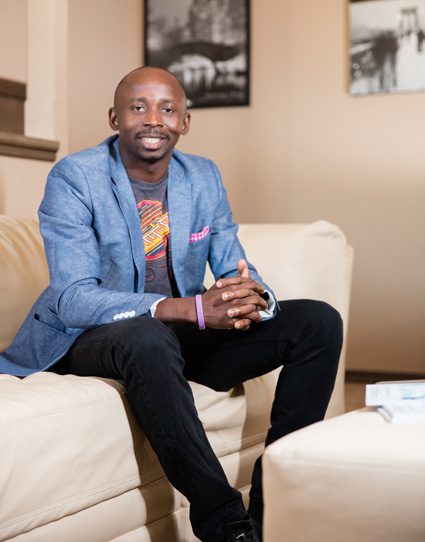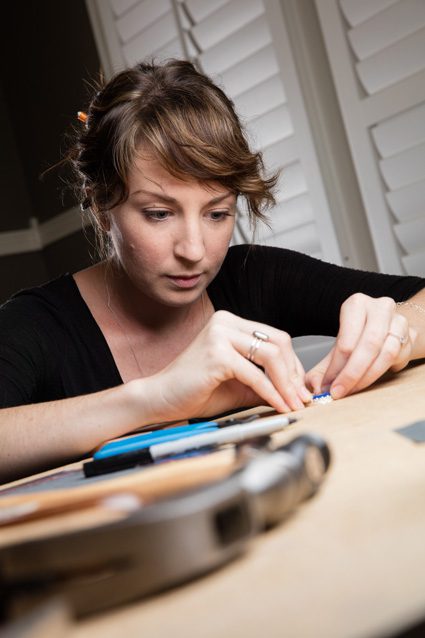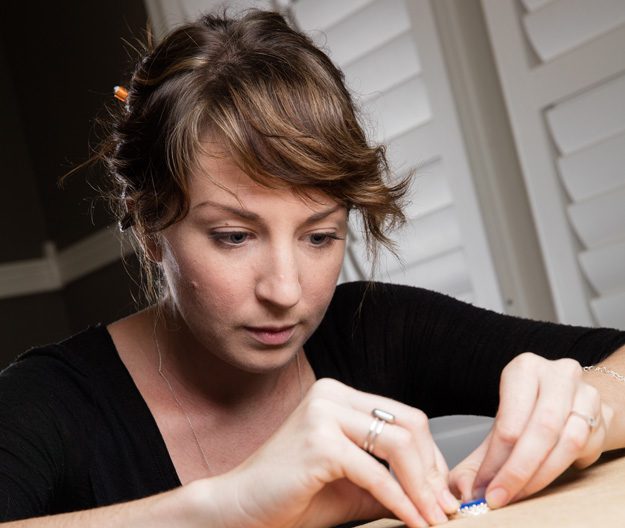
[dropcap]Amas[/dropcap] Tenumah can’t stop smiling. At 32, he is one of a growing number of millennials turning their backs on the traditional 9-to-5 work world to pursue their passions. They’re not just switching jobs; they’re creating their own jobs. And they’re making money at them, too.
Tenumah began his career in customer service. He rose through the ranks quickly, accepted more and more lucrative positions and eventually found himself, at 30, at the top of the executive ladder at Teleflora, the online flower and gift company.
Tenumah slowly carved out a role for himself as an evangelist of sorts, a preacher who spreads the word that customer experience should be every company’s first priority. It should come before profits. It should come before shareholder value. With excellent customer service, the other two will follow.
“I have a worldview which is somewhat contrarian,” he says. “I basically say to CEOs that the entire reason they’re in business is to deliver a great customer experience. They tell me they’re here to make money. I explain that profits and growth are byproducts of that experience.”
Edmond resident Lexi Piper, 26, is smiling equally as broadly. She gave up her job as a retail clerk at an art supply store to pursue silversmithing and photography, two art forms she trained for at the University of Central Oklahoma. She makes jewelry that she sells on her online Etsy store and Facebook page. She also takes custom orders and has reached a point where her passion pays the bills. But she’s not limiting herself to jewelry.
“I would like to be making artwork to sell to the public and make a living through either teaching or creating art. I’m a little different from some artists in that I tend to bounce around and do several different things as far as things that will make me money in the art world,” she says.
Employees First, Then Everything Follows
Tenumah sums up the philosophy that spun him out of the 9-to-5 work world nicely in his book, The Curated Experience. He likes to deliver his message in ways that shock, ways that wedge brains out of the ruts of regular business practices – the kinds of practices that riddle the conventional work world.
“I point out how we devalue people who work in service and expect them to tolerate abusive customers,” he says. “These companies even write policies about how much abuse you should take depending on your pay grade. Those are the people on the front lines that are interfacing with your customers. I like telling the story of Southwest Airlines. They had a very loyal customer who flew with them for years. But all she did was complain. And it eventually got escalated to their CEO. It took him one minute to respond: ‘We will miss you.’ He understands that in his hierarchy, it’s his employees first,” he says.
He puts the exclamation point on the story by noting that during the airline industry turbulence following 9/11, and all of the lay-offs and corporate restructuring that accompanied it, only one airline remained profitable: Southwest. And they didn’t have a single layoff. It’s stories like this that fire Tenumah up and put that wide, bright smile on his face. It’s where his passion comes from. But it’s the kind of story that isn’t received well in the traditional work world.
Yet when he makes the connection, when he finds the CEO who is smarter than the others, he moves in, begins consulting and helps companies redesign their customer engagement programs from the ground up. Maybe he reconfigures that irritating phone tree put into place to save money on employee salaries. Maybe he shows companies how to use their customer data to respond more efficiently and effectively to customer requests.
“There was a big ‘ah-ha’ moment for me,” he says. “It was around Thanksgiving and Christmas. Very big time in retail. We sold a lot of flowers. Our staff is sitting there planning, and it just dawned on me that all of our calculations were just inside out. It was all about how we saw Christmas, not from the customer’s point of view. Little things, like why is it that during holiday seasons, wait times just go through the roof? And we all just accept it. But wait a second. This should not be a surprise to anybody. Christmas has been around for awhile. That’s when I began to see myself as the outsider.”
Tenumah started a series of conversations inside the company. They weren’t enthusiastically received. It was then that he realized he needed to move on. He just didn’t know what was next. There were a couple of attractive job openings in the wings, but they felt like they’d just be more of the same. He founded his own company, BetterXperience, instead.

Freedom To Discover
For Piper, the 9-to-5 work world never appealed to her, even as a child. Her family lived in that world, and it never seemed like it would be a good fit for her.
“I remember being very young and thinking I never could decide exactly what I wanted. Like, what do you want to be when you grow up? My answer was always changing. Everybody I worked with had jobs that they’d had since they were my age, and they stayed in them for the rest of their lives, and I never thought that seemed right for me. I never wanted to be locked into anything,” she says.
Piper wants room to move, freedom to discover and opportunities to push boundaries. In addition to being a silversmith and photographer, she’s also a painter and illustrator. Her work has been featured in local galleries, and she’s well-known for being a switch-hitter in the art world, something she couldn’t do if she were working one job, in one chair, at one desk, at one company.
“This kind of life allows me to explore and learn so many different kinds of things even though it’s definitely not the most stable of life paths,” says Piper. “I just never gravitated toward any kind of career that was permanent. I always thought, well, I’ll do this for a little bit and I’ll do that for a little bit, and hopefully something would stick. I guess I’m bohemian in the sense that I think you should be able to do what you like to do. If you don’t wake up and think, I really want to go to work today, then you should be considering doing something else.”
Tenumah enjoys the same freedoms.
“What I found at the end of the day, was, that what I’m really, really interested in – what drives me – is the ability to make really positive, long-lasting change within customer experience,” Tenumah says. “Sitting in my chair there at Teleflora, I was extremely limited. Within the corporate structure, they just weren’t aligned with my thinking. I needed a bigger platform. Where I was sitting, it wasn’t a big enough platform.”


























